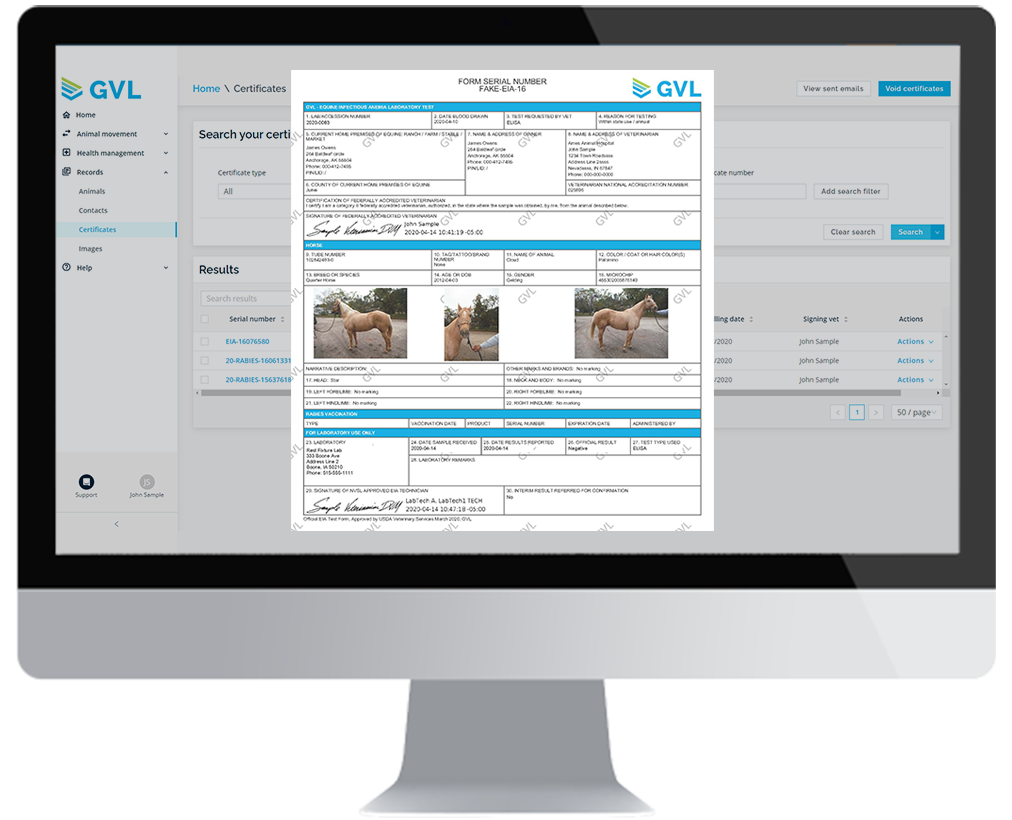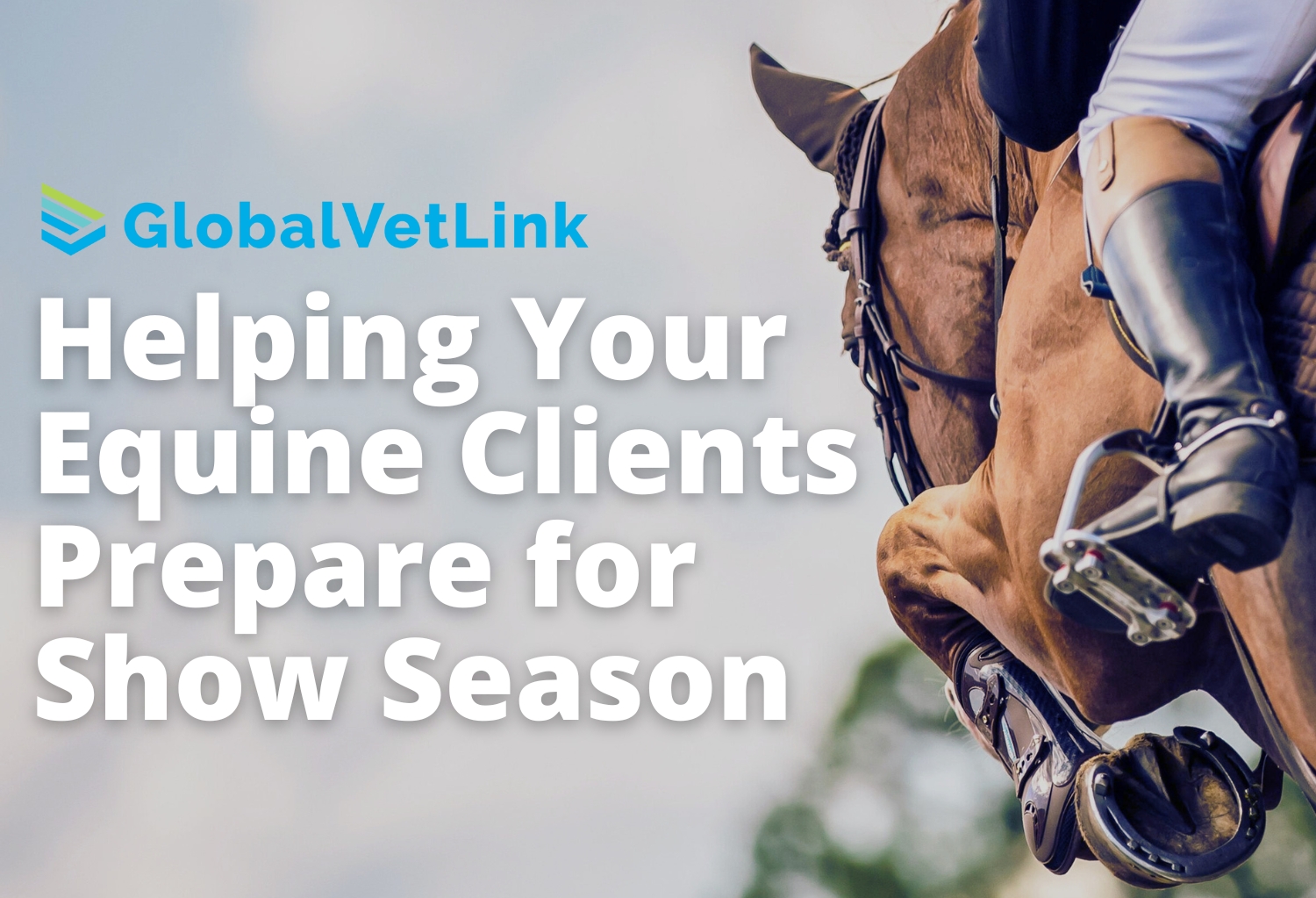Helping Your Equine Clients Prepare for Show Season
As a veterinarian, you play a crucial role in preparing your clients' horses for the show season. Ensuring that equine athletes are in top health and meet all regulatory requirements is essential for a smooth and successful competition season. This blog will guide you on how to effectively assist your clients with necessary health checks and documentation, including the Coggins test and Certificates of Veterinary Inspection (CVIs).
1. Cover the Basics with Regular Check-ups
It’s recommended that your clients arrange for routine veterinary check-ups in the lead-up to the show season. These examinations enable you to assess and confirm the horse's health status. Key areas to focus on during these check-ups include:
- Body and Teeth Condition: Ensure that the horse is at an optimal weight and body condition. Examine the teeth for any issues that might affect feeding and performance.
- Vaccines (Core & Risk-based): Update core vaccinations and consider risk-based vaccines depending on the location and the specific threats present, such as Equine Herpes Virus (EHV) and Equine Influenza.
- Deworming and Fecal Egg Counts: Perform fecal egg counts to tailor deworming treatments effectively, reducing the risk of drug resistance and ensuring the health of the horse.
- Lameness: Evaluate the horse for any signs of lameness or discomfort, which could indicate underlying health issues that may affect performance.
These regular health assessments help in the early detection of potential health issues that could jeopardize the horse's performance or require treatment before heading out for the year.
2. Preparing Early for Interstate Travel
Interstate movement of horses requires adherence to specific health and vaccination standards. Each state may have different requirements, so advise your clients to check the regulations of their destination state well in advance.
Offer to help them understand and navigate these regulations to ensure compliance. This is where the role of the Certificate of Veterinary Inspection (CVI) becomes particularly important, as it provides verification of the horse’s health status across state lines.
Certificates of Veterinary Inspection (CVIs) serve as official records that their horses are free from contagious diseases and meet the health regulations of the destination state. Besides state regulations, various show venues also mandate a valid health certificate issued within the last 30 days before allowing entry.
3. The Coggins Test
The Coggins test is a crucial diagnostic tool for detecting Equine Infectious Anemia (EIA), a potentially fatal viral disease. Ensure your clients understand the frequency of this test and that a current Coggins test is mandatory for most horse shows, sales, and interstate travel.
Mandating proof of a negative Coggins test before travel or participating in an event helps prevent the spread of EIA across regions or among horse populations. This not only protects individual animals but also safeguards economic interests and maintains public confidence in equine-related activities. Therefore, the Coggins test plays a vital role in ensuring responsible horse ownership and effective disease management strategies.

How GlobalVetLink Can Help
GlobalVetLink keeps your clients moving in compliance with easy-to-use software for complete and accurate health certificates, Extended Equine CVIs (EECVIs), digital Equine Infectious Anemia (EIA) tests, plus much more!
Starting Early Is Key
As show season approaches, your role as a veterinarian is invaluable in preparing equine athletes for competition. By ensuring that all health checks are complete and documentation is in order, you help your clients enjoy a hassle-free show season. Remember, a well-prepared horse is the key to a successful performance, and your expertise is crucial in making this happen.
